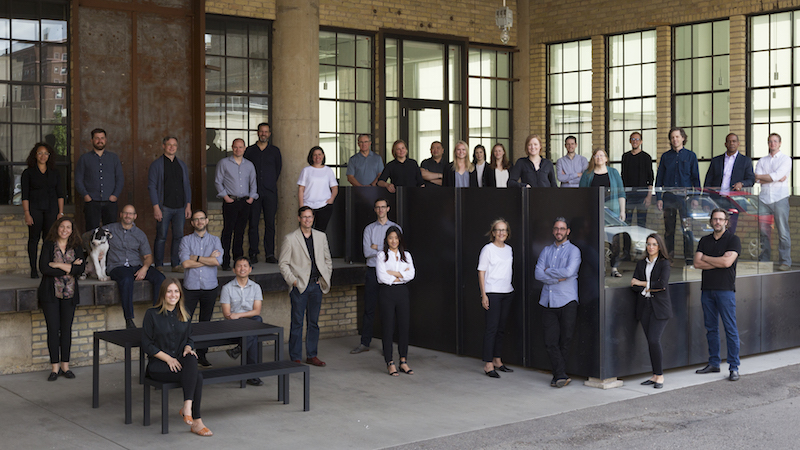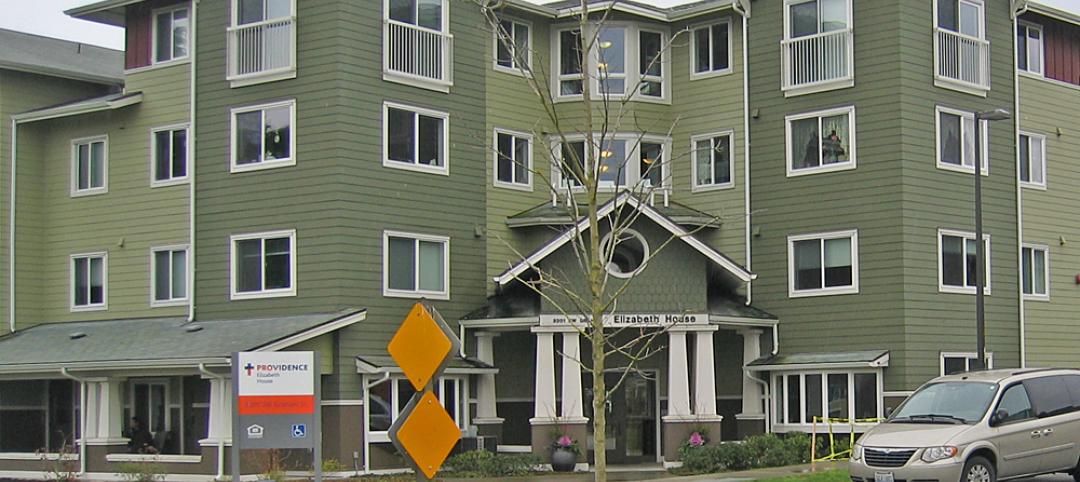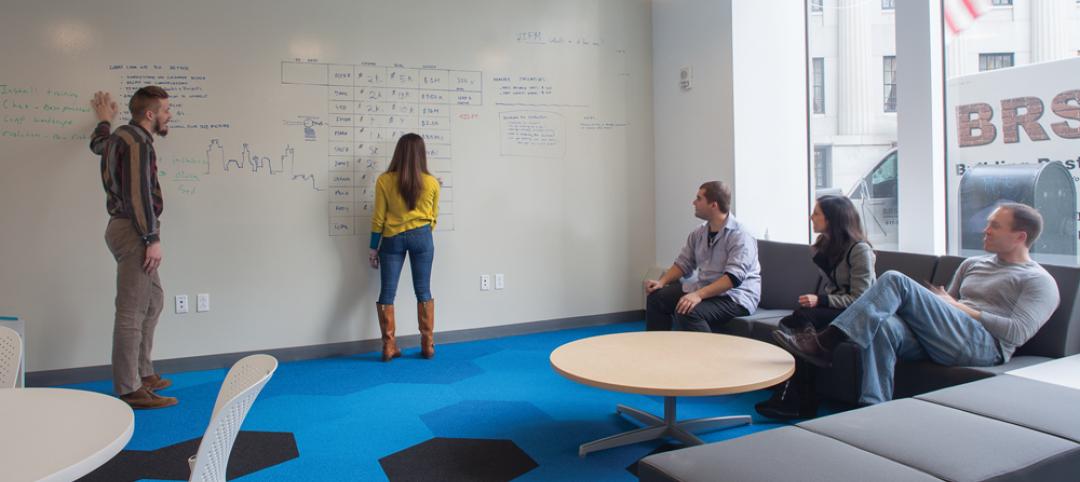The Board of Directors and the Strategic Council of the American Institute of Architects (AIA) voted for Snow Kreilich Architects to receive the 2018 AIA Architecture Firm Award. The AIA Architecture Firm Award, given annually, is the highest honor the AIA bestows on an architecture firm and recognizes a practice that consistently has produced distinguished architecture for at least 10 years. Snow Kreilich Architects will be honored at the AIA Conference on Architecture 2018 in New York City.
Julie Snow, FAIA, founded the firm in Minneapolis in 1995, and later was joined by partner Matt Kreilich, AIA. Snow Kreilich’s practice benefits greatly from the diversity and background of its studio members. Eschewing the demographic norms of many firms, 50 percent of the staff consists of women and minorities, strengthening the culture through holistic collaboration.

All of Snow Kreilich's work springs from the idea that architecture can transform the human experience. Two of the firm's most famous projects — ports of entry for the U.S. Department of Customs and Border Protection in Maine and Minnesota — embody that idea perfectly. Together, the forms of the buildings — the first welcome to America for tens of thousands per year — are about border security as much as they are about a progressive vision for architecture. Their warm materials and glowing interiors project an embracing welcome to all and quietly, but confidently, state that this is a country of bold design solutions.
“This is an architecture of use and convenience, permanence, and beauty, deeply rooted to its place, and constructed of materials choreographed in an emotive way, with poetic qualities that move us deeply,” Marlon Blackwell, FAIA, wrote in a letter supporting Snow Kreilich Architects’ nomination for the Architecture Firm Award. “Their body of work is distinguished by a restrained formal elegance and a refined minimal tectonic sensibility while avoiding the nostalgic and technological excesses of our discipline. Indeed, they see architecture as a material practice and a cultural act born of a sensual pragmatism.”

The Minneapolis firm is also highly regarded for its other building types, from ballparks to single family homes, that each in its own way accomplishes the same mission of elevating the experience of its users. Much of that is done by exercising restraint, eliminating indulgent flourishes in favor of straightforward forms that speak about material richness and tectonic refinement.
Across the Mississippi River in a Minneapolis warehouse district, the firm's 2014 Brunsfield North Loop Apartment uses metal cladding and angular balconies that jut from the facade to set the building apart from its neighbors as the hippest offering in a hot rental market.
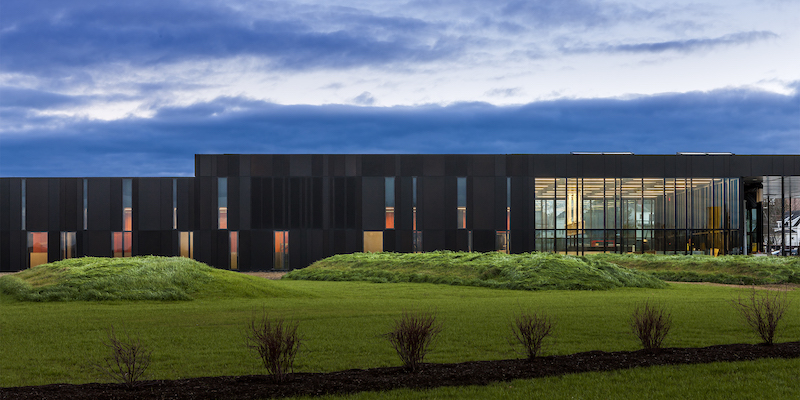
Giving back to the communities of Minnesota and the profession are key initiatives beyond design excellence, and many studio members are involved in local architecture schools. In 2017, the firm provided $120,000 in pro bono services to outlets such as the Kibera Girls Soccer Academy in Kenya and the Leatherback Trust in Costa Rica. By shelving the idea of all-night charrettes and promoting a healthy work/life balance, Snow Kreilich has proven that important and award-winning architecture can be conceived during regular business hours.
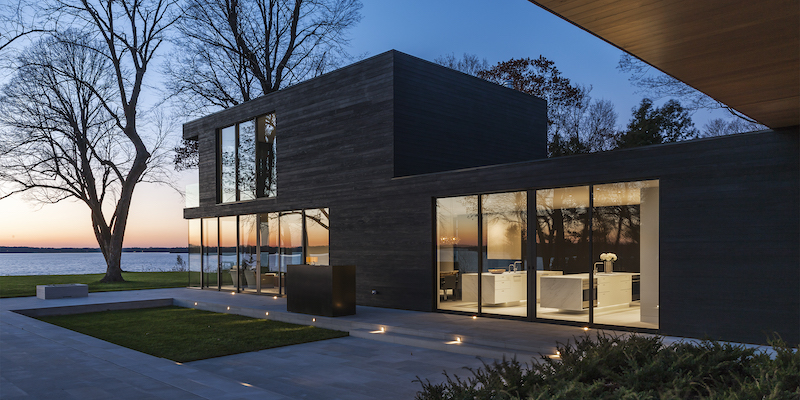
Other notable projects include:
CHS Field
This project in St. Paul, Minn., was named the best New Ballpark of 2015 by Ballpark Digest. The facility is not only a beautiful venue to watch a baseball game or concert, but also has attracted major investments in housing and restaurants in the neighborhood.
B + W HOUSE
The design replicates the neighborhood’s residential pattern while creating an affordable, sustainable home. A concrete wall encloses the perimeter of the private spaces at grade. The wall is a cast-in-place concrete system with a 4-inch high performance insulation core, providing a cost-effective, energy-efficient, and durable enclosure.
KNOCK INC.
The renovation of a neglected 1960’s food distribution center on the edge of downtown Minneapolis into the new workplace for the creative innovators at KNOCK Inc. Daylight penetrates the space with expanded window openings, floor-to-ceiling glazed office walls, and more than 25 solar light tubes enhancing the work environment and reducing energy consumption. Healthy and local building materials such as reclaimed walnut enhance the workday.
Snow Kreilich Architects is the 55th AIA Architecture Firm Award recipient. Previous recipients of the AIA Firm Award include Leddy Maytum Stacy Architects (2017), LMN Architects (2016), Ehrlich Architects (2015), Eskew + Dumez + Ripple (2014), Tod Williams Billie Tsien Architects (2013), VJAA (2012), Lake| Flato (2004), Gensler (2000), Perkins & Will (1999), Bohlin Cywinski Jackson (1994), and Skidmore, Owings & Merrill (1962).
Related Stories
| May 20, 2014
Kinetic Architecture: New book explores innovations in active façades
The book, co-authored by Arup's Russell Fortmeyer, illustrates the various ways architects, consultants, and engineers approach energy and comfort by manipulating air, water, and light through the layers of passive and active building envelope systems.
| May 20, 2014
Gensler envisions 'law firm of the future' with pop-up office project
Called "The Legal Office of the Future," the pop-up demonstration project made its debut this week at the annual conference for the Association of Legal Administrators in Toronto.
| May 20, 2014
Using fire-rated glass in exterior applications
Fire-rated glazing and framing assemblies are just as beneficial on building exteriors as they are on the inside. But knowing how to select the correct fire-rated glass for exterior applications can be confusing. SPONSORED CONTENT
| May 20, 2014
World's best new skyscrapers: Renzo Piano's The Shard, China's 'doughnut hotel' voted to Emporis list
Eight other high-rise projects were named Emporis Skyscraper Award winners, including DC Tower 1 by Dominique Perrault Architecture and Tour Carpe Diem by Robert A.M. Stern.
| May 19, 2014
What can architects learn from nature’s 3.8 billion years of experience?
In a new report, HOK and Biomimicry 3.8 partnered to study how lessons from the temperate broadleaf forest biome, which houses many of the world’s largest population centers, can inform the design of the built environment.
| May 19, 2014
Why e-commerce won't kill 'bricks and mortar' retail sector
Despite emerging structural challenges and newly-announced store closings, such as those of Radio Shack and Office Depot, the U.S. retail sector has continued on its solid recovery.
| May 16, 2014
BoA, USGBC to offer $25,000 grants for green affordable housing projects
The Affordable Green Neighborhoods Grant Program will offer 14 grants to developers of affordable housing in North America who are committed to building sustainable communities through the LEED for Neighborhood Development program.
| May 16, 2014
HED expands leadership in San Diego
Neville Willsmore, Thomas Christian join leadership team for Harley Ellis Devereaux.
| May 16, 2014
Toyo Ito leads petition to scrap Zaha Hadid's 2020 Olympic Stadium project
Ito and other Japanese architects cite excessive costs, massive size, and the project's potentially negative impact on surrounding public spaces as reasons for nixing Hadid's plan.
| May 15, 2014
Paints, coatings, and sealants: 10 new ways to seal the deal
Color-shifting finishes, dry-erase surfaces, and stain-blocking paints are highlighted in this round up of new offerings in paints, coatings, sealants, and finishes.


